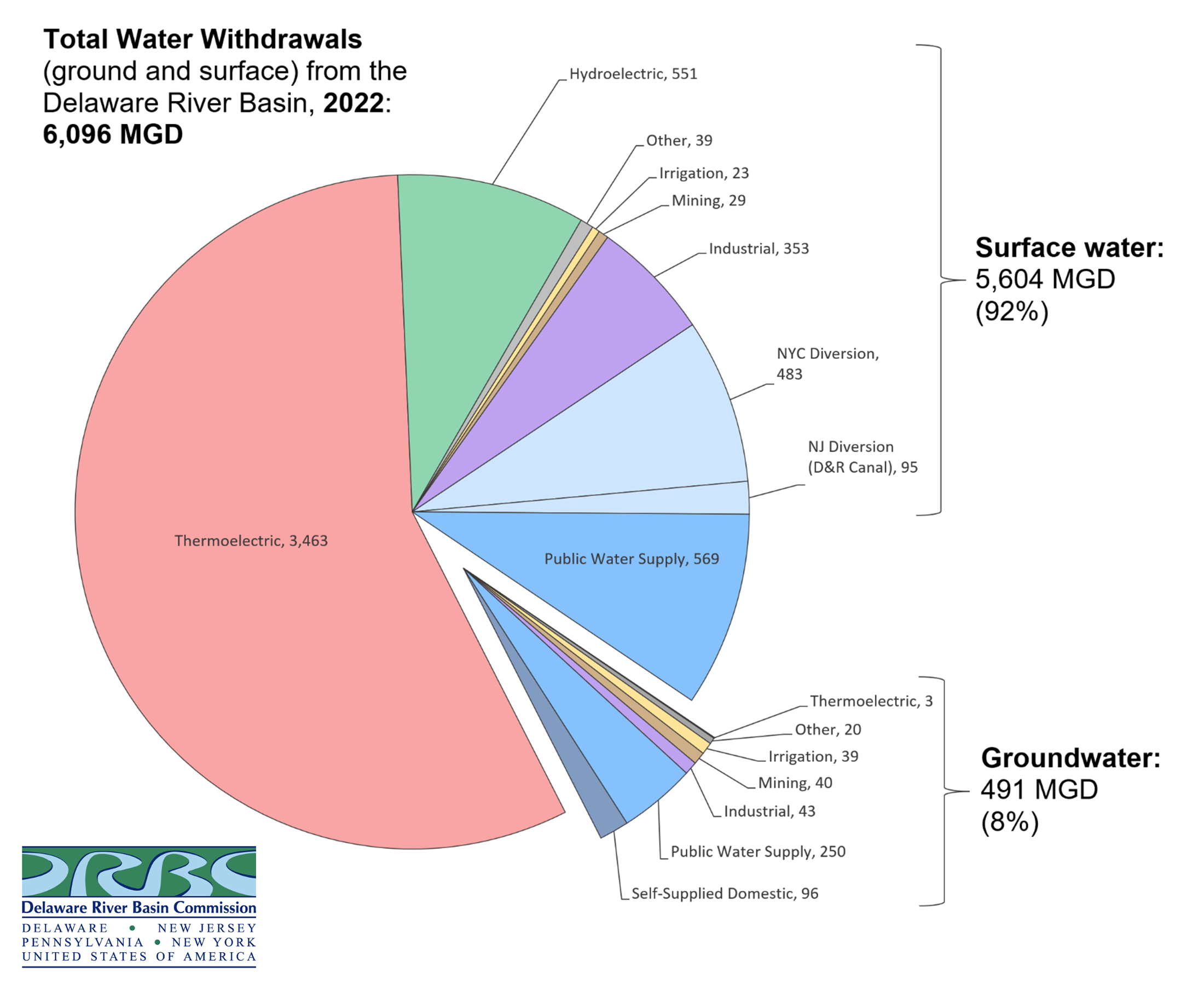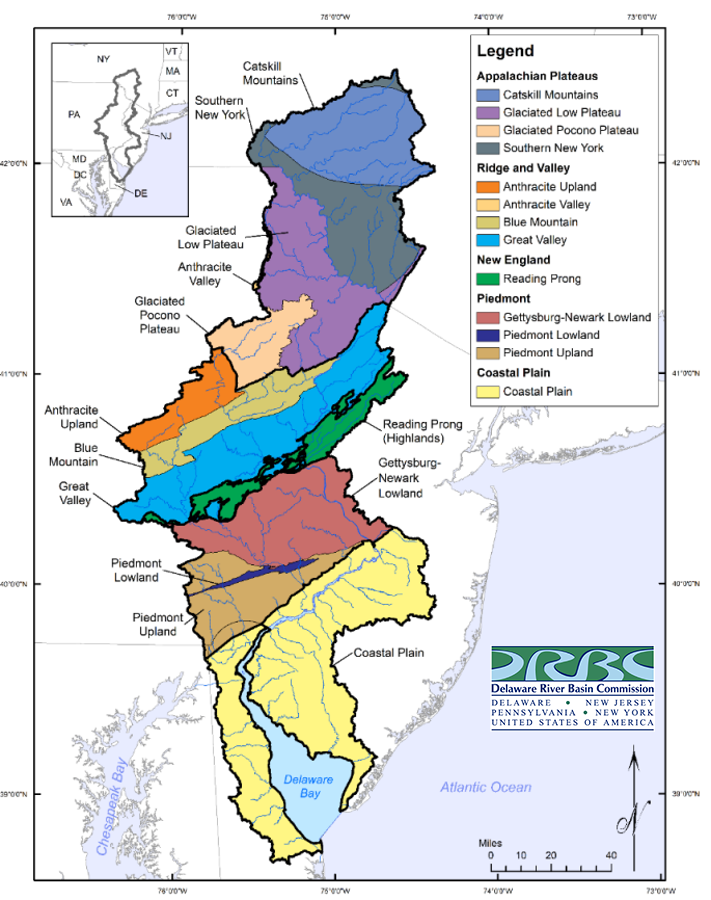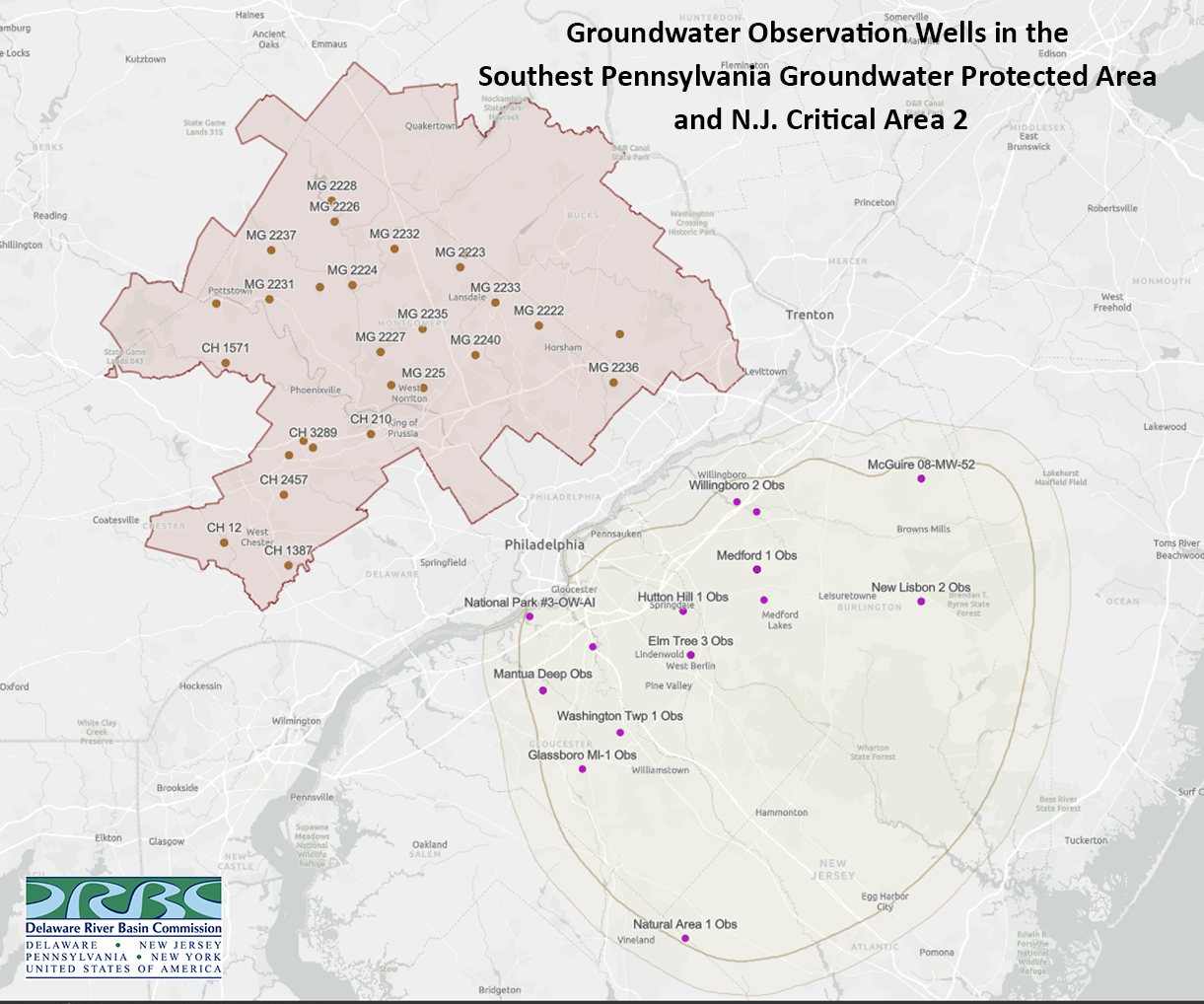Delaware • New Jersey • Pennsylvania
New York • United States of America
- Basin Water Use
- Groundwater
- Water Conservation Program
- Water Audit Program
- Data Centers
- Water Withdrawal & Consumptive Use: Estimates & Projections (2021 Report)
- Evaluation of Additional Water Storage in the Delaware River Basin
- Water Management Advisory Committee
- Water Resource Data Sets
- Water Resources Resilience Plan
- Water Charging Program
- DRB Groundwater Use
- Groundwater & Physiography
- Special Groundwater Management Areas in the DRB
- Groundwater Availability: Estimates and Projections
- Groundwater Withdrawals by Sector: Historic vs. Projected
- DRBC Presentations
What is Groundwater?
Groundwater is freshwater found underground. It is stored in and moves slowly through geologic formations of soil, sand and rocks called aquifers.
How much Groundwater is Withdrawn Daily from the Delaware River Basin (DRB)?
- Groundwater withdrawals amount to about 8% of all water withdrawn from the DRB daily (2022 data).
Only 8%? Why is it Important to Track Groundwater?
- Roughly 71% of that 8% is for drinking water supply (public and private wells).
- Other uses of groundwater include irrigation, mining, industry and thermoelectric power generation.
USGS Groundwater Info
The United States Geological Survey has observation wells in each Basin state. DRBC tracks conditions in these wells throughout the year.
In the Delaware River Basin (DRB), two main physiographic divisions impact groundwater:
- Appalachian Highlands (includes the Appalachian Plateaus, Ridge and Valley, New England and Piedmont physiographic provinces)
- Underlain by fractured bedrock and have high energy streams and rivers
- Less groundwater storage and movement
- Underlain by fractured bedrock and have high energy streams and rivers
- Atlantic Coastal Plain
- Underlain by unconsolidated sediments (clay, sand and gravel)
- Higher baseflows and increased groundwater storage
- Underlain by unconsolidated sediments (clay, sand and gravel)
Two areas of the DRB are included in special management programs to mitigate historical groundwater supply issues and prevent future stress:
- Southeastern Pennsylvania Groundwater Protected Area (SEPA-GWPA)
- DRBC program, began in 1980 at the request of Pennsylvania
- 1,200 square-miles
- 127 municipalities
- Neshaminy, Wissahickon, Brandywine and Perkiomen creek watersheds
- 1,200 square-miles
- More stringent water withdrawal regulations than rest of Basin
- DRBC program, began in 1980 at the request of Pennsylvania
- N.J. Critical Area 2 (managed by N.J.)
-
Located in the Potomac-Raritan-Magothy (PRM) aquifer system in southwestern New Jersey
-
Improved water efficiency and a switch to using surface water have decreased withdrawals, putting less stress on the aquifer
-
These programs have been successful in protecting groundwater resources through:
- Stricter control and regulation of groundwater withdrawals
- Comprehensive water conservation programs
- An overall increase in surface water diversions to supplement or reduce groundwater withdrawals
View Current Monitoring Well Data:
2022 Report
In December 2022, the DRBC published a report that analyzed DRB groundwater availability for the DRB and projected groundwater availability estimates through the year 2060. The report identified subbasins that are projected to approach or exceed withdrawal thresholds during a dry (25-year recurrence) and very dry (50-year recurrence; represents the drought of record). Analyses were completed at the DRB and SEPA-GWPA scales.
- Estimated Groundwater Availability in the Delaware River Basin 2020 - 2060 (pdf; December 2022)
Key Takeaway
- Groundwater resources are being used at sustainable rates in the Delaware River Basin and also in the SEPA-GWPA in both dry and very dry scenarios.
- Top level results are shown in the graphics below. Click to view larger.
- Looked at dry (25-year) and very dry (50-year) scenarios; results were similar
- Lack of color means that modeling showed those subwatersheds are projected to have less than 25% of available groundwater used, indicating sustainable use
- While use is projected to be higher in the colored subwatersheds, further analysis showed expected use to also be sustainable
- The 26 watersheds in gray were not assessed due to withdrawal interactions with confined aquifers in the Coastal Plain
- Looked at dry (25-year) and very dry (50-year) scenarios; results were similar
Looking Ahead
Future groundwater use will be impacted by seasonality and changes in water demands, reinforcing the need for continued management and planning.
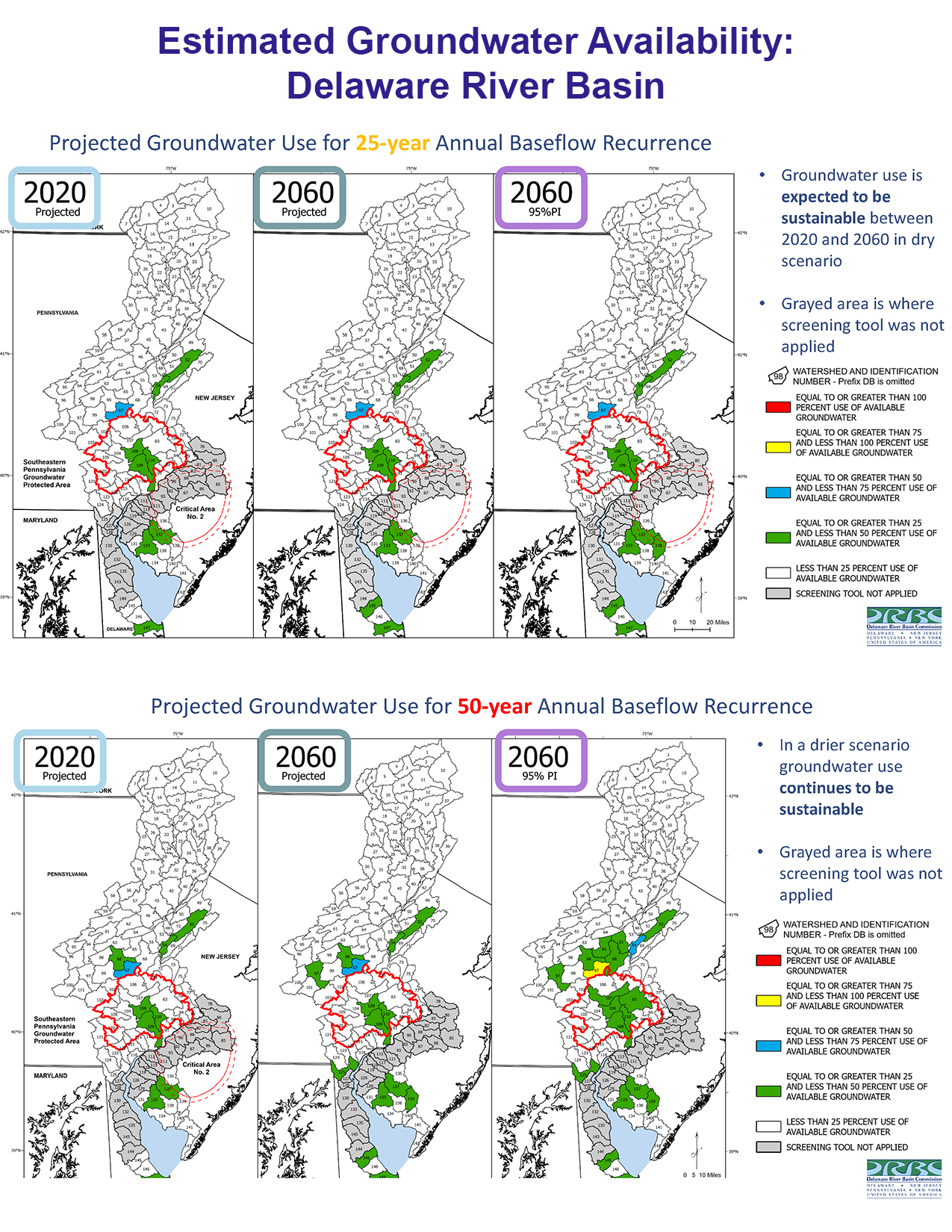 |
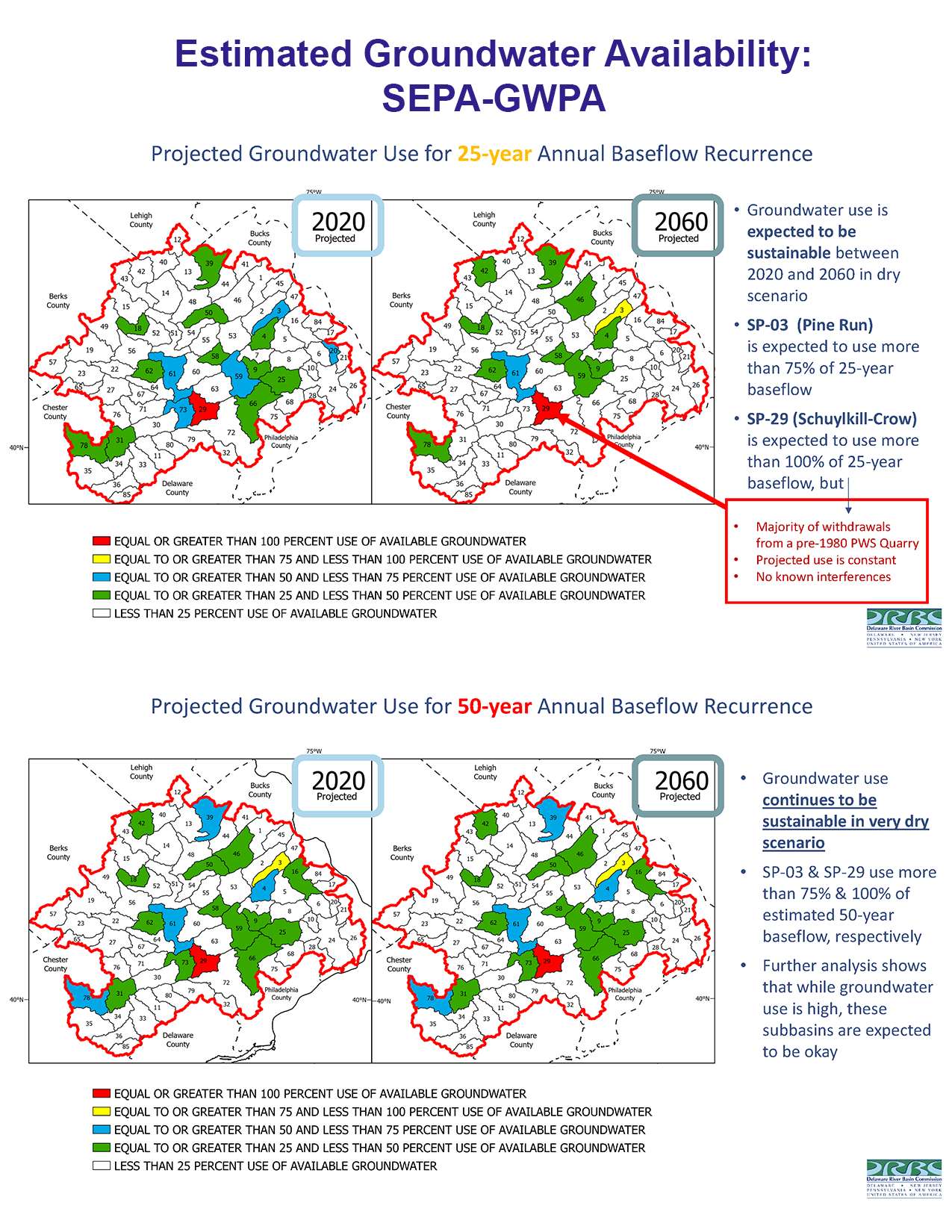 |
DRB Groundwater Withdrawals (1990-2020) and Projections (to 2060)
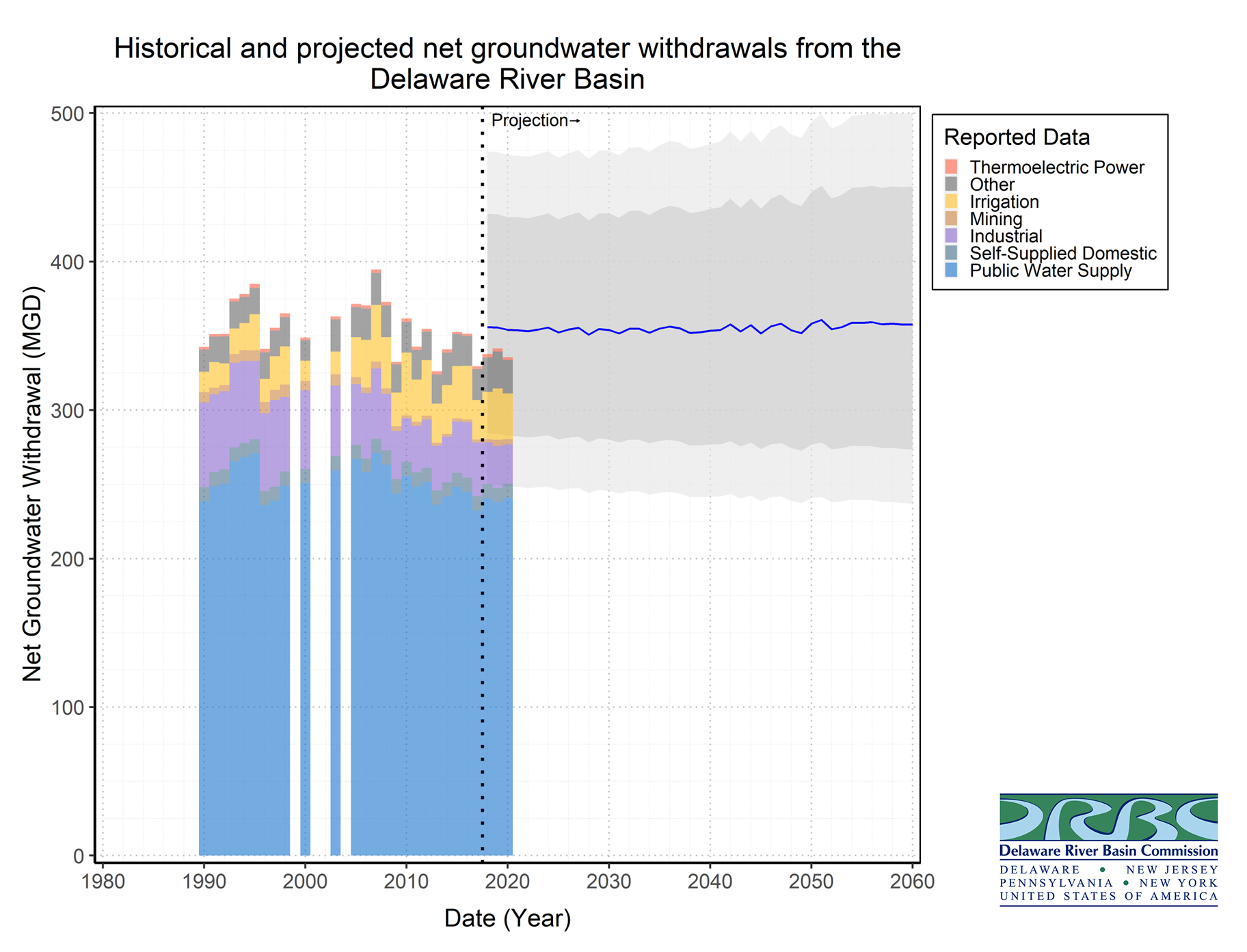
SEPA-GWPA Groundwater Withdrawals (1990-2020) and Projections (to 2060)
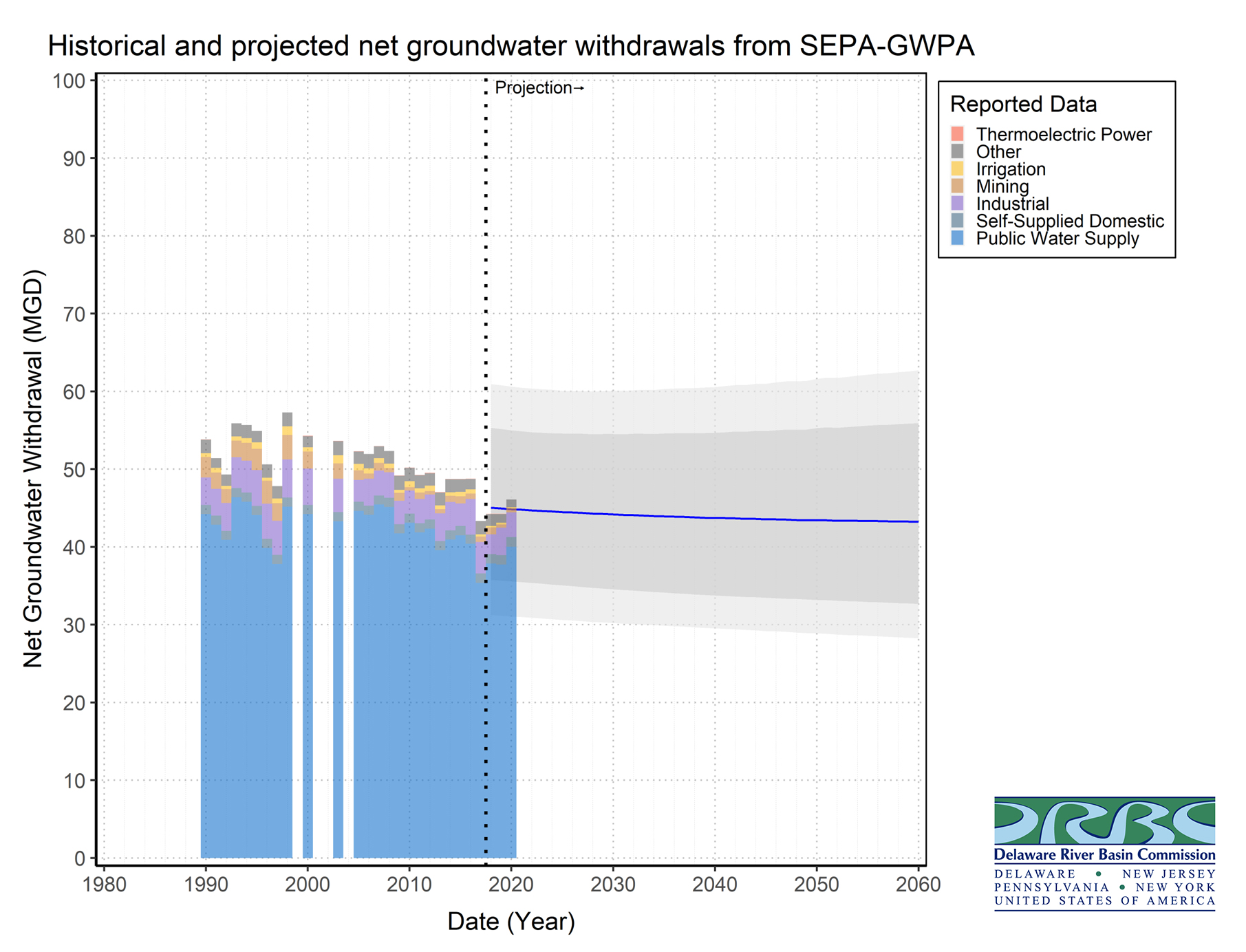
- DRBC Groundwater Management (pdf; presented at WeConserve PA Conference, October 2024)
- Is Groundwater Being Used Sustainably in the Delaware River Basin? (pdf; presentation given at the Nov. 2022 American Water Resources Association National Conference)
- Estimated Groundwater Availability in the Delaware River Basin (pdf; presentation given at the June 16, 2022, WMAC Meeting)
- Estimated Groundwater Availability in the Delaware River Basin (pdf; presentation given at the February 17, 2022, WMAC Meeting)
Copyright © Delaware River Basin Commission,
P.O. Box 7360, West Trenton, NJ 08628-0360
Phone (609)883-9500; Fax (609)883-9522
Thanks to NJ for hosting the DRBC website
